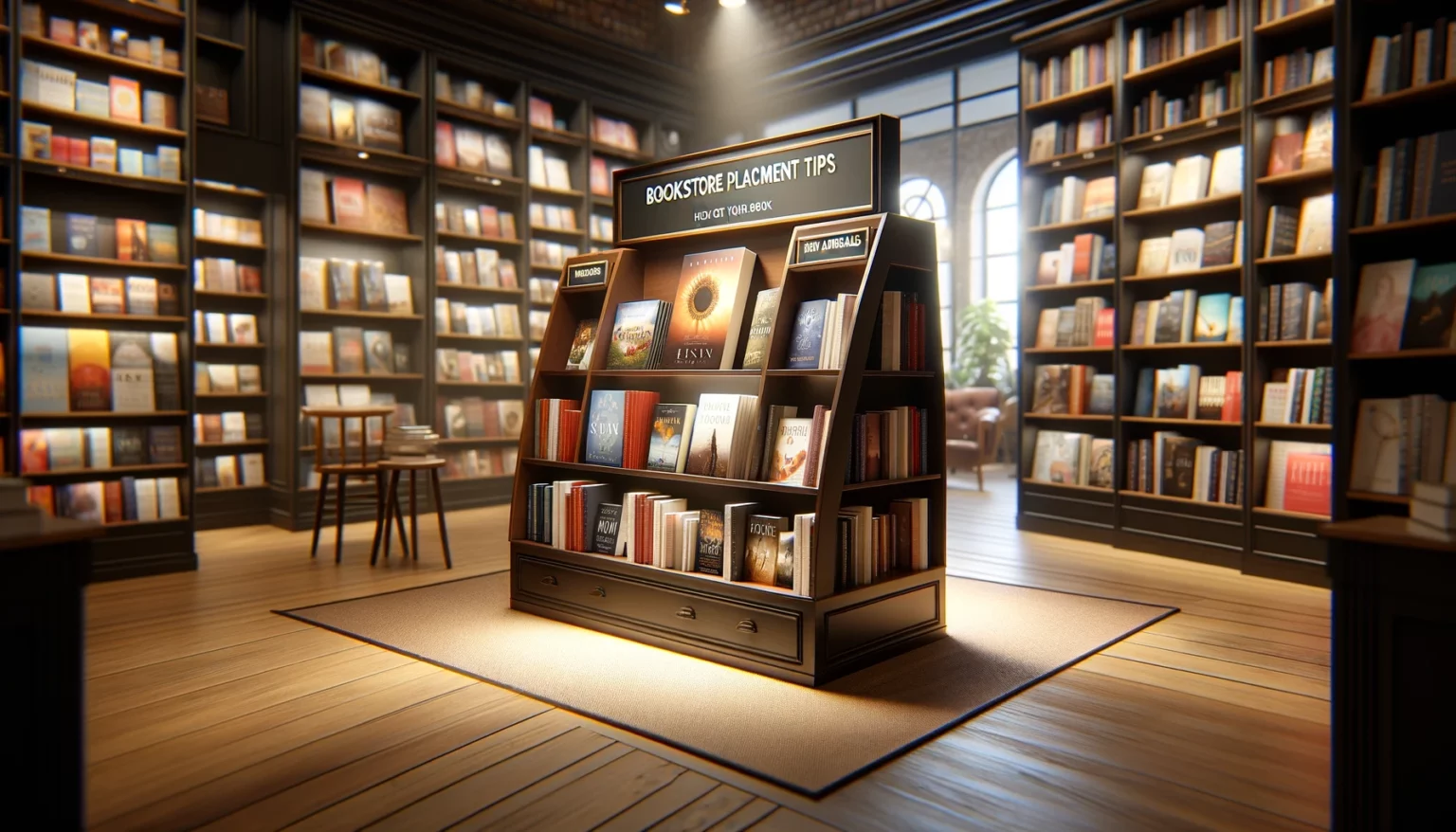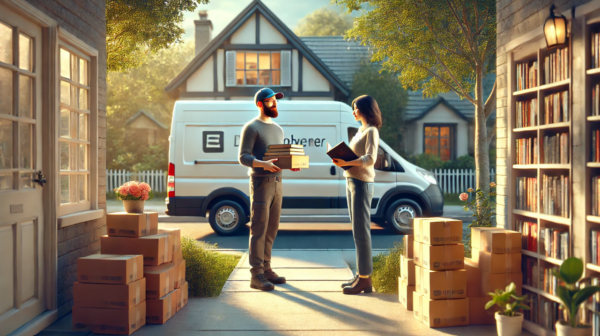In the era of digital dominance and at the heart of book distribution, the charm and potential of physical bookstores remain unparalleled for authors aiming to see their work flourish. Securing a spot on the shelves of bookstores is not just a rite of passage but a crucial milestone that can significantly amplify a book’s visibility, credibility, and sales. This tangible presence allows authors to connect with readers in a way that digital platforms cannot replicate, offering the serendipity of discovery among the aisles and the tactile pleasure of leafing through pages.
This article zeroes in on the bookstore placement tips and the strategic nuances of placing books in independent and brick-and-mortar bookstores—a segment of the retail world that offers unique advantages. Independent bookstores, often the heart of local literary communities, provide a supportive and personalized platform for authors. They act as cultural hubs where word-of-mouth can transform local interest into nationwide acclaim. By focusing on these physical outlets, authors can tap into networks of passionate booksellers and engaged readers, creating a foundation for success that complements digital sales channels.
Understanding the Bookstore Landscape
Navigating the bookstore landscape requires an understanding of the distinct roles and benefits of independent versus chain bookstores. Independent bookstores are locally owned retail establishments that often focus on personalized customer experiences, community involvement, and curated selections tailored to local tastes and interests. These stores are vital to fostering a sense of community and promoting local authors, as they frequently host book signings, readings, and other events that connect writers directly with their readership. In contrast, chain bookstores, part of larger corporate entities, offer a broader selection of titles and potentially greater exposure but might lack the personalized touch and community focus of their independent counterparts.
Your Publishing Journey Awaits – Start NowIn today’s digital age, where ebooks and online retailers have transformed how people access and purchase literature, brick-and-mortar bookstores stand as beacons of physical experience and discovery. They offer something inherently valuable that online platforms cannot replicate: the tactile joy of browsing shelves, the smell of new books, and the personal recommendations from knowledgeable booksellers. This environment can create a memorable shopping experience that encourages loyalty and repeat visits. Moreover, physical bookstores serve as cultural landmarks within communities, hosting events that bring authors and readers together in celebration of the written word.
The importance of brick-and-mortar stores extends beyond the sensory and communal to the economic, supporting local economies and providing employment opportunities. For authors, understanding this landscape is crucial for strategically placing their books. Independent bookstores, in particular, can be more receptive to local authors and more flexible in arranging events, signings, and promotions. Effective placement in these stores requires recognizing their significance as community hubs and leveraging their unique position in the broader bookstore ecosystem. By appreciating the distinct values of independent and chain bookstores, authors can better navigate the complexities of the modern book market and find the most suitable homes for their works.
Library Distribution: Enhancing Reach and Credibility
In addition to bookstore placements, authors should not overlook the importance of library distribution. Libraries play a vital role in increasing a book’s accessibility and broadening its audience reach. By securing their titles in public, academic, and digital libraries, authors can tap into a diverse and engaged readership. Libraries often provide opportunities for author events, readings, and discussions, further enhancing visibility and community engagement. Moreover, having a book available in libraries adds a layer of credibility and prestige, as many readers and literary professionals regard library collections as trusted sources of quality literature.
Building Relationships with Bookstore Owners
Cultivating personal relationships with bookstore owners and booksellers is pivotal for authors seeking to secure shelf space for their books. These connections can lead to more visibility, tailored promotions, and opportunities for events like signings and readings. Bookstore owners, especially those running independent shops, have a deep passion for literature and a vested interest in promoting works that resonate with their community. A personal relationship with them can give authors insight into the bookstore’s clientele, preferences, and promotional strategies, enabling more effective collaboration.
Approaching Bookstore Owners
Approaching bookstore owners requires a thoughtful and respectful strategy. Start by researching the store to understand its genre preferences, community involvement, and any events it regularly hosts. This preparation shows owners that you value their business model and are serious about contributing positively to their store. When introducing yourself and your work, be concise yet engaging, highlighting what makes your book a good fit for their shelves and their customers.
Cultivating Relationships
Communication with bookstore owners and booksellers should be professional and consistent. After the initial contact, follow up with personalized messages, offering detailed information about your book and how it can appeal to their customers. Be open to feedback, advice, and suggestions, as these professionals have a keen understanding of what sells and how to market books effectively.
Finally, offer to participate in events or promotions, demonstrating your commitment to supporting the bookstore beyond just selling your book. This could include book signings, author talks, or participation in community events the bookstore supports. Such initiatives not only bolster your relationship with the bookstore but also increase your visibility among potential readers.
Building and maintaining these personal relationships require time and genuine effort, but the rewards—increased exposure, sales, and a supportive network within the local literary community—are well worth the investment.
Local Stores and Local Authors: A Perfect Match
Local bookstores and local authors form a symbiotic relationship that can significantly benefit both parties, offering a unique blend of community engagement and mutual support. For local authors, targeting neighborhood bookstores presents an invaluable opportunity to build a loyal readership base, gain visibility, and contribute to the local economy. These stores are often more open to showcasing local talent, recognizing the appeal of regional literature to their customers who are interested in local culture and stories.
Your Publishing Journey Awaits – Start NowOne of the primary benefits for local authors working with nearby bookstores is the opportunity to leverage community connections. These stores are community hubs, frequented by avid readers and those interested in supporting local businesses and artists. Authors can capitalize on this by participating in local events hosted by bookstores, such as book signings, readings, and discussions. These events not only provide authors with direct access to their audience but also allow for deeper engagement through Q&A sessions, personal anecdotes, and insights into the writing process.
Furthermore, local authors can collaborate with bookstores on promotions that tie into community events, holidays, or celebrations unique to the area. This approach not only increases the book’s visibility but also embeds the publisher and author within the fabric of the local culture, making their work more relevant and appealing to the community.
Engaging with local bookstores and participating in community events also offer authors the chance to receive direct feedback from readers and booksellers, which can be invaluable for marketing and future writing projects. Building a strong presence in local bookstores can serve as a foundation for broader success, as word-of-mouth and bookstore recommendations can propel an author from local to national recognition.
In essence, the relationship between local authors and local bookstores is one of collaboration and mutual growth. By supporting each other, they enrich the local literary scene, foster a sense of community, and ensure that both can thrive in an increasingly digital world.
Bookstore Placement Tips – Strategies for Book Placement
Securing a coveted spot for your book in a bookstore involves strategic planning and an understanding of the bookstore’s layout and inventory considerations. The real estate within a bookstore is limited and highly competitive, making it essential for authors to present and sell their books as valuable additions to the store’s collection.
1. Research and Target Appropriately:
Begin by researching bookstores to find those that are a good match for your book’s genre and audience. Tailoring your approach to stores where your book fits in increases the likelihood of placement and sale.
2. Create a Compelling Pitch:
Your pitch to bookstore owners or managers should succinctly highlight what makes your book unique and why it would appeal to their customers. Include any local relevance, your marketing plans, and how you intend to support the bookstore, ideas such as through social media promotion, or local events.
3. Offer Consignment Deals:
Many independent bookstores are open to consignment arrangements, where books are placed on shelves without upfront payment and profits are shared once sales occur. This reduces the risk for the bookstore and can be an attractive and profitable option for getting your book on shelves.
4. Leverage Special Display Areas:
Ask about opportunities for your book to be featured in high-traffic areas, such as near the checkout counter, in window displays, or on end caps. These placements increase visibility and can significantly boost sales. Offering to participate in events like book signings or readings can make such placements more appealing to bookstore owners.
5. Understand Inventory Considerations:
Be mindful of the store’s inventory and space limitations. Offering a return policy on unsold books can alleviate inventory risk for the shop or bookstore and make them more receptive to stocking your book.
6. Build and Maintain Relationships:
Successful book placement is often the result of ongoing relationships with bookstore staff. Regular visits, thank you notes, and updates about your book’s progress can help keep your book in mind and on shelves.
By implementing these strategies, authors can improve their chances of securing prominent placement in bookstores, ensuring their titles reach more readers and achieve greater success.
Your Publishing Journey Awaits – Start NowMarketing and Promotions to Support Bookstore Sales
To enhance bookstore sales, authors and publishers must adopt a multifaceted approach to marketing and promotions, leveraging both online platforms and community engagement. Effective marketing strategies can significantly impact the visibility and appeal of your book, encouraging both bookstores and readers to take notice.
1. Organize Events:
Hosting events such as book signings, readings, and Q&A sessions can draw crowds to the bookstore, generating buzz and boosting sales. Collaborate with bookstore owners to schedule these events, ensuring they align with the store’s calendar and audience preferences. Events not only promote your book but also contribute to the bookstore’s community atmosphere, creating a win-win scenario.
2. Utilize Social Media:
Social media platforms are powerful tools for promoting your book and related events. Create engaging content that highlights your book’s themes, behind-the-scenes insights, and upcoming bookstore events. Use targeted hashtags, tag the bookstore, and encourage followers to visit the store. Social media contests and giveaways can also drive interest and foot traffic to the bookstore.
3. Engage with the Local Community:
Building connections with the local community can significantly enhance your book’s appeal. Participate in local festivals, fairs, and literary events to increase your visibility. Collaborate with other local authors, businesses, and community organizations for cross-promotion opportunities. By establishing yourself as an active member of the community, you can create a loyal local following that supports your bookstore presence.
4. Offer Promotional Materials:
Provide the bookstore with promotional materials such as bookmarks, posters, and flyers to help advertise your book and events. These materials can be placed strategically around the store to catch the eye of potential readers.
5. Leverage Email Marketing:
If you have a mailing list, use it to inform subscribers about your book’s availability in local bookstores and upcoming events. Personalized emails can encourage your existing fan base to support your bookstore presence.
By combining these marketing and promotional tactics, authors can significantly increase their book’s visibility, encourage bookstore sales, and foster a strong connection with their readers and the local community.
Your Publishing Journey Awaits – Start NowThis article has navigated the crucial steps for authors aspiring to see their work featured in bookstores, emphasizing the importance of understanding the bookstore landscape, building relationships with bookstore owners, strategizing book placement, and bolstering sales through effective marketing and community engagement. Securing a spot on bookstore shelves not only enhances visibility but also connects authors with their readers in meaningful ways.
Authors are encouraged to view bookstore placements as a pivotal component of their overall marketing strategy, leveraging the unique opportunities that physical bookstores offer. Success in this endeavor requires persistence, a tailored approach, and a commitment to fostering genuine connections with both bookstore personnel and the reading community. By adhering to these strategies, authors can maximize their chances of bookstore success, contributing to a thriving local literary ecosystem and achieving their publishing goals.
If you’re ready to publish your manuscript and preparing to introduce it to readers, turning to Spines is your next move. With Spines, step into the next era of publishing, where our AI-powered platform revolutionizes your publishing process. We offer thorough editing and proofreading, eye-catching cover creation, smooth distribution, and targeted marketing on various channels and platforms, guaranteeing that your book stands out. Sign up for free to start your journey with Spines.







